In this post, we’ll look at healthy substitutes for sugar. We’ll cover why these choices are better alternatives to highly refined sugar. Plus, I’ll tell you about one substitute I never use, and why you shouldn’t either.
If you have been following me for a while, no doubt you have read my post on How to Quit Sugar and watched the video, too. You know that I used to struggle with my weight and that I had an unhealthy relationship with sugar, as many of us unknowingly do.
So, you see, I knew that in order to maintain the clean eating lifestyle that I had started to keep, I had to take a big step. A move forward in my journey to good health.
And yes, that step was to finally quit sugar. I know that some of you wonder, how is it that I gave up sugar?
Realistically, we know that giving it up totally is impossible because many of the foods that we eat contain sugar. So, what I mean is, that I gave up highly processed sugar that is stripped of its nutritional value. Now, I try to consume only natural sugars found in clean, wholesome foods.
But of course, I do have to add ingredients when I cook and bake that add sweetness when required. And that’s when I look to healthy sugar substitutes like pure maple syrup, coconut sugar, and raw honey. These are my top 3 picks and my go-tos whenever a recipe calls for a sweetener.
So, let’s take a look at how much better these 3 picks are than refined sugars. Then, we’ll look at a few more sugar substitutes and cover how they are useful as replacements for highly processed sugars. And of course, there’s the one alternative I NEVER use, agave nectar.
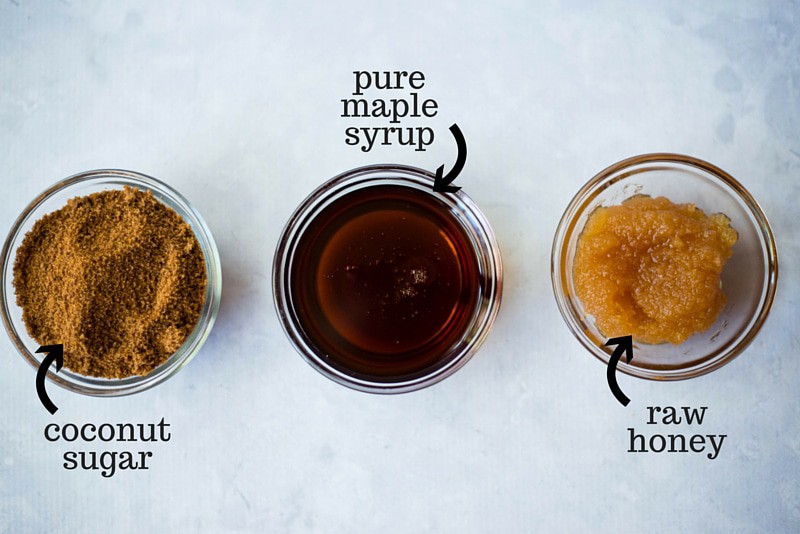
1. PURE MAPLE SYRUP
Pure maple syrup. Yum! Besides being amazingly delicious and all-natural, pure maple syrup contains antioxidants (24 to be exact!) and nutrients like potassium, manganese, and iron. It’s easy on the liver because of its low glycemic index score, and also has the potential to reduce inflammation in the body. We all know about inflammation and its harmful effects on the body and this bonus makes pure maple syrup one of my top picks as a sugar substitute. It’s a great addition to a tasty vanilla latté!
Other good things about maple syrup are:
- Pure maple syrup helps with digestion
- Pure maple syrup can help better manage your blood sugar
- When used in baking, pure maple syrup does not break down and thus maintains its nutritional value
- This sweetener has a 1:1 ratio of any liquid sweetener or honey, so is easy to use in recipes
- If you are a vegan and don’t want to consume raw honey, pure maple syrup is the ideal replacement
2. RAW HONEY
Raw honey is a nutritional powerhouse when it comes to sugar substitutes. Honey, in its raw form, contains royal jelly, beeswax, and pollen.
It also contains propolis, also known as bee glue, because the bees use it to fill crevices and seal honeycombs. Propolis is known to have anti-cancer properties as well as anti-inflammatory, antibacterial, and infection-fighting properties.
Amino acids and enzymes are found in honey, too. Other things to know about raw honey:
- Buy raw honey, not pasteurized or filtered to get these benefits, so be sure to look for that as you shop
- Use raw honey if you have a recipe that calls for a liquid sweetener that does not need to be heated too high (you don’t want to lose the nutrients in the cooking process)
- Conveniently, the ratio is 1:1 just like the pure maple syrup
- It’s great on veggies like Brussel sprouts or used in a Honey Mustard Dressing
3. COCONUT SUGAR
Coconut sugar is made from the sap of the coconut palm. It is extracted and made into granules through boiling. Inulin, a type of fiber, slows glucose absorption and, therefore, gives this sugar substitute a lower glycemic index than highly processed sugar.
- Coconut sugar has a 1:1 ratio to granulated sweeteners and tastes similar to brown sugar
- There are higher levels of zinc, calcium, and iron than you will find in regular granular sugar or high-fructose corn syrup
- Potassium and antioxidants are found in coconut sugar
- This sugar substitute is unrefined
- Sweeten dishes like Healthy Cinnamon Apples as a low GI sugar replacement
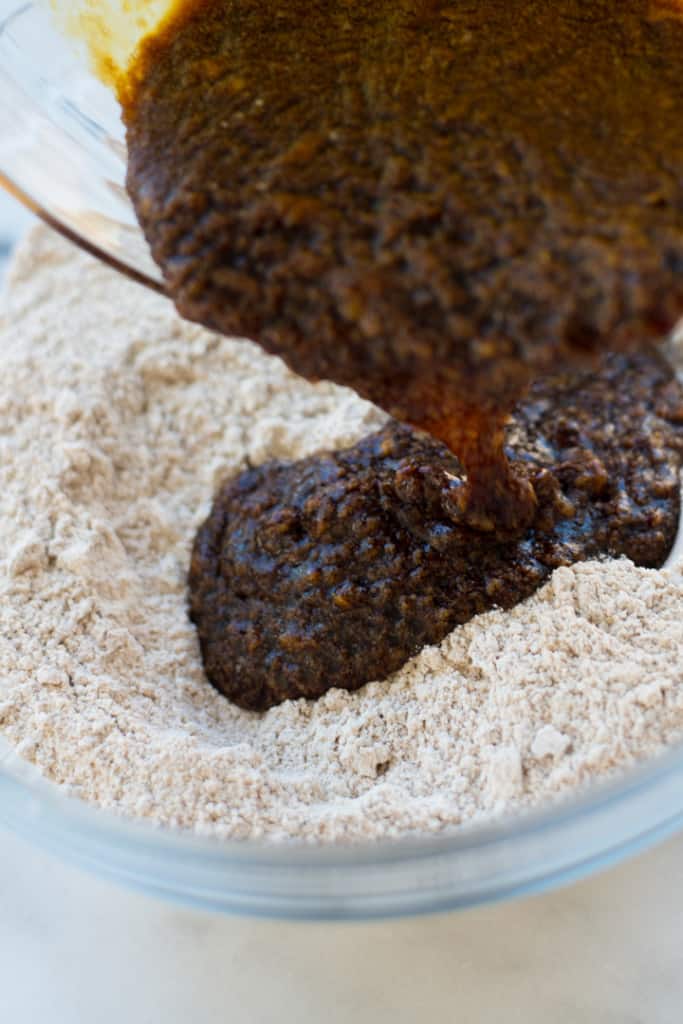
4. MOLASSES
Molasses is made from boiling down sugar beet juice or cane sugar. The syrup is a dark, thick liquid. It is often used to soften cookies and is tasty in marinades and sauces. You can buy light, dark, or blackstrap molasses, depending on the recipe. Blackstrap is the most concentrated of the three and has the most nutrients.
- Calcium (for bone health) is relatively high in molasses
- Copper, iron, and selenium help maintain bone health
- Potassium promotes normal blood pressure
- Enjoy in recipes like Healthy Ginger Cookies
5. STEVIA
Although I am not a fan of stevia because one has to be so careful about whether the brand purchased has been highly processed, some people love the versatility of this sweetener. Stevia is a sugar substitute that originates in the leaves of the plant Stevia rebaudiana. It is a popular sugar substitute because it has zero calories, and doesn't appear to break a fast by causing an insulin spike. Studies show it to be safe. Health benefits associated with it are the regulation of blood pressure (because of the stevioside found in the plant), and it has no effects on blood glucose levels.
Facts about stevia include the following information:
- Stevia is 200 to 300 times sweeter than table sugar
- Stevia contains no sugar and no calories
- The antioxidant, kaempferol, may help reduce the risk of pancreatic cancer
- As with any sweetener, use in moderation
6. XYLITOL
With a sweet taste similar to sugar, xylitol is considered natural. That is because it is found in very small amounts in some fruits and vegetables (strawberries and mushrooms being examples). Xylitol has fewer calories than sugar, but does have a very small effect on blood sugar if consumed in high doses.
- Xylitol is considered safe for diabetics
- Sugar has 4 calories per gram, while xylitol has 2.4 calories per gram
- Sugar can be replaced at a 1:1 ratio with xylitol
7. ERYTHRITOL
Erythritol is a natural sweetener. It has .24 calories per gram, compared to xylitol, which has 2.4, and sugar, which has 4 calories per gram. Erythritol is called a sugar alcohol, and like other sugar alcohols (mannitol, xylitol, sorbitol, for example) can cause digestive issues like bloating if used in large amounts. Typically though, our consumption doesn’t reach the level that brings on the digestive trouble.
- Erythritol does not spike insulin or blood sugar
- It has 70% of the sweetness of refined sugar
- Erythritol melts in high heat and does not caramelize, so keep that in mind when using it in the kitchen
- It can be used in recipes, but the baked goods are best on the day you make them
- Many bakers use it in a 1:1 ratio to sugar
WHY AVOID AGAVE NECTAR?
Agave nectar is composed mostly of fructose. Fructose can overload the liver and, in turn, lead to fatty liver disease. Not only that, but consuming fructose in excess is thought to be the cause of many serious diseases. Type II diabetes, cancer, and obesity are said to be linked to fructose in excess.
Sure, it has a low glycemic index, and that’s a good thing, but it is associated with the bad cholesterol (LDL) which leads to heart disease. Agave nectar is considered a factor in insulin resistance and poor regulation of blood sugar. It may increase the levels of uric acid in your body, leading to high blood pressure. All in all, it’s just loaded with fructose, and that is not what we want to be eating.
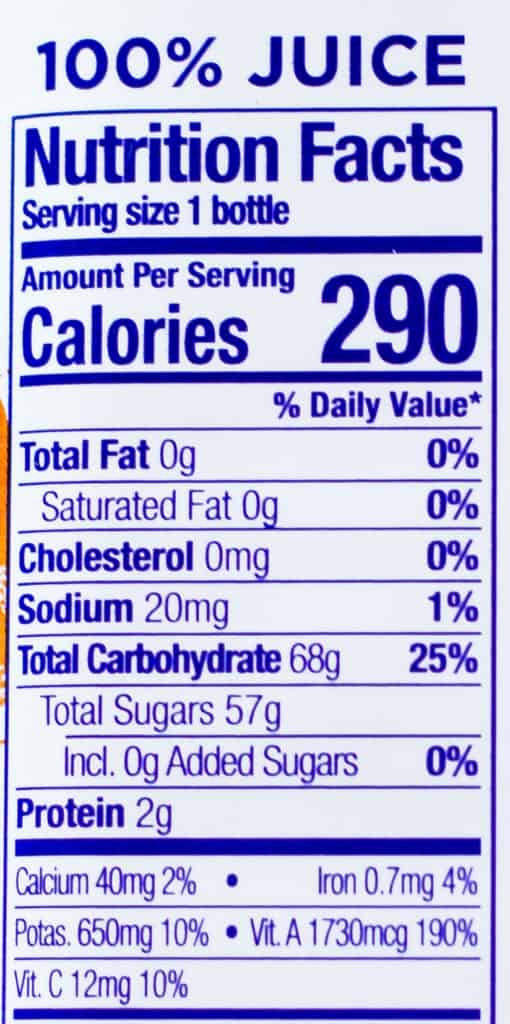
HOW CAN I REDUCE MY SUGAR INTAKE?
Watch my video on how I quit sugar, and you’ll see that you, too, can reduce your sugar intake. Some of the ways I discuss in the video and in my post are listed below. Honestly, it is not an impossible feat - I’m proof - and you can succeed, too!
- Go through your pantry and remove items with hidden sugars, like ketchup and barbecue sauce
- Don’t fall for artificial sweeteners; they are bad for you and make foods taste super sweet, leading to sugar dependency
- Read the labels on what you buy; leave items with organic cane syrup, high fructose corn syrup, and dextrose on the shelf
- Identify the culprits that lead to your sugar dependency like sodas, chocolate, and sweeteners in coffee
- Start slow and do your best every day
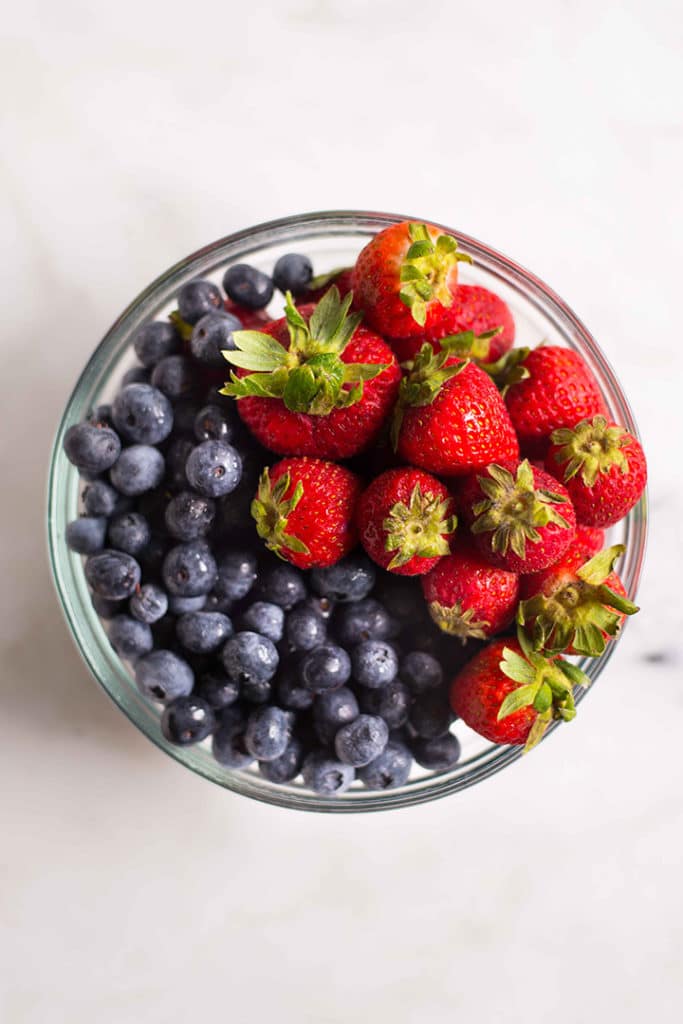
HOW CAN I ENJOY NATURAL SUGAR AT HOME?
I’m not saying that you cannot have sugar at all, just not the bad-for-you refined sugars found in processed foods. Eat clean; it’s as simple as that, and you will be on your way to a healthier you.
- Get your sweet fix from healthy fruits and vegetables that contain natural sugars
- Remember that whole foods contain fiber, something your body really needs
- Use my go-to sugars (pure maple syrup, coconut sugar, and raw honey) when you cook instead of refined sugars
- Replace sugar in your day to day pleasures, such as coffee and tea, with my go-to favorites, or even slowly wean yourself off sugar in these drinks
- Make sweet treats at home that you can enjoy without adding sugar, like yummy 1 Ingredient Banana Ice Cream
You can expect that you may have headaches and cravings, and you may not even feel that great. But soon, you will feel amazing. Then, sweet foods will not appeal to you like they once did.
BENEFITS OF REDUCING YOUR SUGAR INTAKE
When looking to eat clean, it comes with a reduction of sugar. This is a good thing, folks, and I can tell you that you will never regret cutting back on sugar! There are so many benefits, and if you are looking to lose weight, getting rid of sugar is a step in the right direction. What are the other benefits? Take a look at this list!
- Reduced chance of heart disease
- Better dental check-ups because sugar is terrible for the teeth
- Fewer problems with inflammation
- Reduced chance of fatty liver disease
- Reduction in high blood pressure
- Less chance of obesity
- You will eat more whole foods
- Reduced risk of cancer
- Improved skin
- Prevention of moodiness
HEALTHY SUGAR SUBSTITUTES FOR A KETO DIET
Both erythritol and xylitol are suitable for the keto diet. When on a keto regimen, your goal is to reach ketosis (when your body breaks down fat stores instead of carbs as an energy source). A reduction in sugar is key to the keto diet, so consider these sugar substitutes:
- Xylitol
- Erythritol
- Monk fruit sweetener
- Stevia
- Yacon syrup
For the keto diet, raw honey, pure maple syrup, and coconut sugar are not considered ideal despite the benefits they provide.
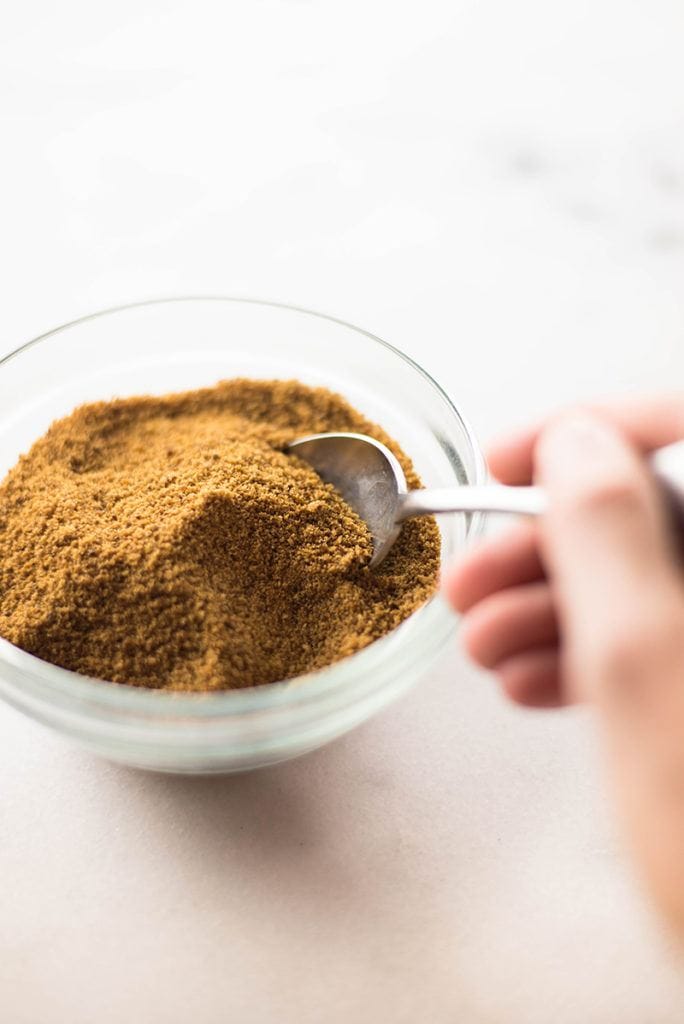
HEALTHY SUGAR SUBSTITUTES FOR A VEGAN DIET
Beet sugar is vegan because it is not processed the way other refined sugars are. A strict vegan will not want to use any type of sugar that has been processed with bone char (which gives refined sugar its white color). As well, vegans typically do not want to eat honey in any form. Additional sugar substitutes that are vegan-friendly are:
- Pure maple syrup
- Coconut sugar
- Date paste
- Monk fruit sweetener
- Stevia
HEALTHY SUGAR SUBSTITUTES FOR A PALEO DIET
Sugars that are acceptable in the paleo diet are considered natural. This means that you’ll want to avoid overly processed sugars altogether. Paleo followers want to see some health benefits in the sugar substitutes they consume. Choose these if you are on the paleo eating regimen:
- Blackstrap molasses
- Coconut sugar
- Raw honey
- Stevia
- Pure maple syrup
MORE HEALTHY LIVING POSTS
I've written other posts on sugar, along with several others about eating clean and living healthy. Happy reading!
- How to Quit Sugar: The 7 Steps I Took to Finally Quit Sugar and How You Can, Too!
- The Top 18 WORST Fake Healthy Foods (Avoid These)
- Does Intermittent Fasting Work For Weight Loss? Beginner's Guide to Intermittent Fasting
- Is Coffee Healthy? 11 Insane Benefits of Coffee
- 15 Weight Loss Hacks That Actually Work!
This post contains affiliate links for products I regularly use and highly recommend.

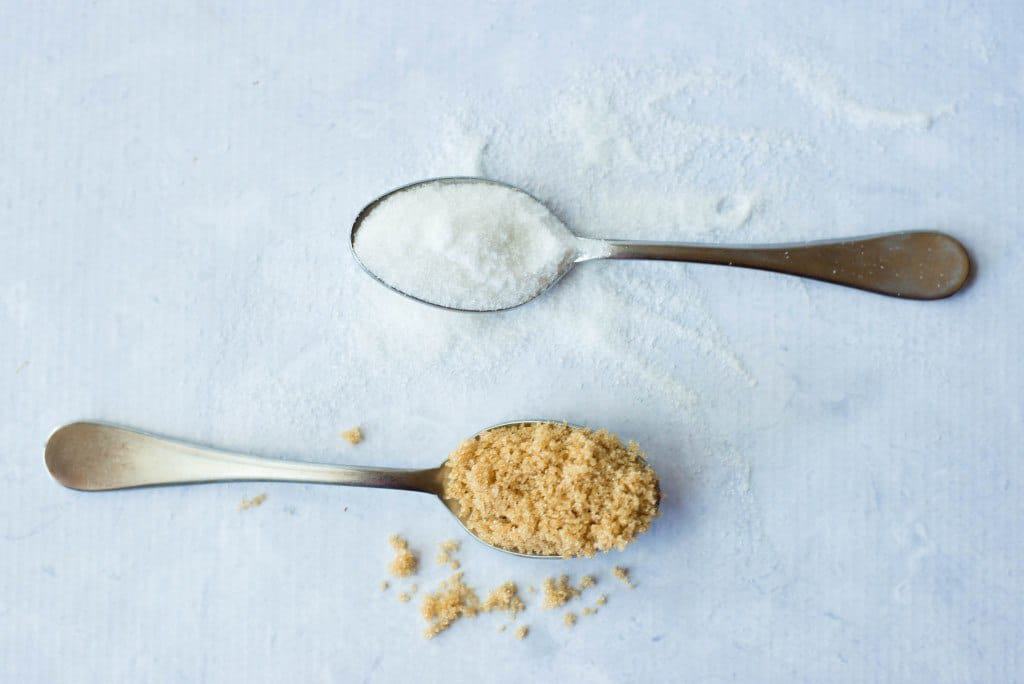
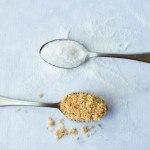
Patty Seaman
How often do you recommend consuming even the 'healthy' sweeteners when reducing inflammation due to arthritis, tendonitis? Is once a week or month okay of maple syrup?
Jen Moderator
Hi Patty, thank you for your question. When it comes to reducing inflammation, it definitely varies from person to person. Tune in with how you respond to maple syrup and go from there. I will say that maple syrup is never on Lacey's list of things to avoid if you struggle with inflammation. In fact, some studies have shown that maple syrup can be anti-inflammatory! But again, this does depend on your unique response. Please keep us posted on how this goes for you! -Jen
bernadette
Thank you for a concise descriptions of all those sugars. You have a new, eager follower....quilting and dieting in north carolina